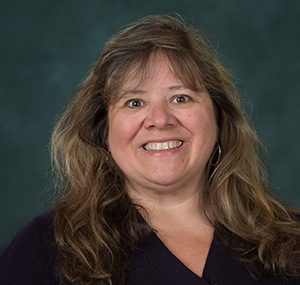In the 1990s, when Colorado’s powerful microbrew industry was still in its infancy, most small breweries got their malted barley from outside the state, especially from Canada.
At that time, Stephan Weiler, an economics professor at Colorado State University, wrote a feasibility study examining the financials of growing and malting barley in Colorado’s San Luis Valley. By the end of that decade, the Colorado Micromalting Project had resulted in the construction of a small micromalting plant that provided brewers along the Front Range with a steady supply of high-quality malt that could be transported quickly and inexpensively — and provided the San Luis Valley with steady business for farmers and much-needed, higher-wage manufacturing jobs.


Identifying rural solutions to urban needs, and vice versa, has been a big part of Weiler’s work for decades. He served as a research officer at the Federal Reserve’s Center for the Study of Rural America in the mid-2000s and founded the Regional Economic Development Institute (REDI) at CSU in 2017.
“People in rural areas, in particular, have been struggling for a long time, and nobody’s been listening,” Weiler said. “That became really clear after the 2016 election. And Colorado can become a national leader in bridging the urban-rural divide. Rural areas and urban areas do best when they work together.”
Weiler, who founded REDI after being awarded the William E. Morgan Endowed Chair in the College of Liberal Arts, co-directs REDI with Professor Dawn Thilmany of the Department of Agricultural and Resource Economics. The institute generates bi-monthly briefs on wide-ranging topics such as charter school supply and demand, uses for contaminated lands, Colorado’s rental market, local food hubs, and the relationship between poverty and incarceration rates.
New Partnership: Future of REDI
Through this new partnership between REDI and OCED, CSU hopes to elevate its level of engagement with state agencies, industry and policymakers. Initial projects involve working with the Colorado Department of Labor on the on-demand economy, bridging the City of Denver with rural ag and food businesses to increase rural wealth, and helping implement the Colorado Hemp Advancement and Management Plan with the Colorado Departments of Agriculture and Public Health and Environment. Thilmany joined CSU’s Office of Community and Economic Development this year as an extension of her role as associate director of REDI. For more information about REDI, visit redi.colostate.edu.
Statewide trends
State Demographer Elizabeth Garner, who earned her master’s degree and did doctoral work in agricultural economics at CSU in the mid-1990s, said the research that Weiler and REDI have been doing is invaluable.
“For me, it’s hard to separate Stephan Weiler from REDI, because he’s been doing this work for so long,” she said, adding that the malted barley example is just one of many efforts to provide economic solutions to Colorado’s rural areas, many of which are seeing population declines.
“Typically you live in a place because you can make a living there,” Garner said. “But the natural resources and agricultural industries have changed — there are fewer jobs because of technological advances, especially in agriculture. You can just do so much more now with fewer people.”
She noted that while urban areas and the overall state population continue to grow, about 25 percent of Colorado’s counties are seeing population declines. The state’s fastest-growing industries are service-oriented, and need people to survive: health care, professional business services, and food service/hospitality.
“Colorado has not seen a lot of growth in industries that don’t need people,” Garner said. “In most of our rural areas, it wouldn’t make sense to build a new manufacturing plant. We need to match solutions to the location and its environment.”
“If you want a job in a rural area, you almost have to create your own,” Weiler added. “Rural areas tend to be more entrepreneurial than urban areas. And rural businesses, especially women-owned ones, tend to be more resilient and resistant to things like recessions. REDI takes these various pieces and identifies patterns.”
Brewpubs and coffee shops
One indicator of a small rural community’s vibrancy and long-term prospects, Thilmany said, is whether it can support a brewpub. Or a coffee shop that is frequented by professionals for meetings and telecommuting. Beyond acting as a cultural amenity to draw new community members, it may represent the places where we now conduct business. In fact, as rural areas improve their access to broadband and other technologies, telecommuting could become a key tool in shifting population growth from urban to rural areas.
“Can someone live in Akron and work remotely for a firm in Greeley?” Garner asked.
Thilmany added that Colorado is becoming a “foodie” state, and one key economic driver for rural areas may be more value-added agriculture, or even “agritourism,” which is one of the areas where she focuses her research and community engagement. Agritourism can make rural areas destinations for visitors seeking activities as diverse as fishing/hunting trips on private land, farm dinners, RV campgrounds, dude ranches, food and arts festivals, heritage cultural sites, and even stargazing where there are low levels of light pollution.
Thilmany noted that many rural ranches and farms are reinventing themselves and diversifying their offerings. She pointed to the James Ranch in the Durango area, where family members had the opportunity to return home to launch a cheese-making operation and fruit/vegetable stand. In the Grand Junction area, she added, another couple’s kids have returned to the family orchard to start a cidery and sell grapes to local wineries.
Thilmany and Weiler said that while Colorado has well-known seasonal crops like Olathe corn, Palisade peaches, and Rocky Ford melons, there are always opportunities to seize on the next popular food craze — or find other crops that grow well in the state. Thilmany cited sunflower oil as an example of a Colorado-based alternative to soybean and canola oil that, unlike olive oil, can be produced in many states.
“We are trying to find opportunities where people who want to support local agriculture can put their money where their mouth is,” Thilmany said. “Farmers’ markets have been a great first step, and the state Colorado Proud brand is more recognized than ever, but a lot of people are still shopping at grocery stores or ordering food on Amazon without knowing how to find Colorado goods.”
Weiler agreed.
“Agriculture is one key way of branding yourself and being proud of your state,” he said. “’Colorado-grown’ is now a tagline.”
Women-owned businesses hardy in recessions

One of Stephan Weiler’s former Ph.D. students who helped build the early foundations of REDI during her time at CSU found some interesting results when she looked at women-owned businesses and how they performed during the Great Recession.
Tessa Conroy (M.A. ’12, Ph.D. ’14), who co-authored a piece for The Conversation with Weiler in March 2017 about the entrepreneurial nature of rural areas, found evidence that women-owned firms are more resilient than firms owned by men during economic downturns. In a 2017 article in Applied Economics, she and her co-authors examined U.S. county data from 2007 to 2013 to test previous research indicating that women-owned businesses were less likely to lay off workers than those owned by men.
Consistent with the earlier findings, Conroy and her co-authors found that regional economic stability increases with the share of women-owned and women-managed establishments. According to their article, possible reasons for this include women’s tendency to avoid riskier businesses, stronger sense of loyalty to workers and willingness to take lower rates of monetary returns. Studies suggest that women often exhibit interpersonal skills such as sharing that support relationships and community.
In addition, they cite research indicating that women can be more altruistic as well as more risk- and competition-averse than men. Experiential research shows women are less likely than men to lie to gain monetary pay-off, but more likely than men to choose a large (or preferable) but delayed reward over a small immediate reward, according to Conroy and her co-authors.
“Taken together, the literature seems to indicate that women may take a relatively communal view of their businesses and that they have a stronger interest in the well-being of their employees compared to their male counterparts,” they write.
Conroy is now an assistant professor and economic development specialist at the University of Wisconsin-Madison.

